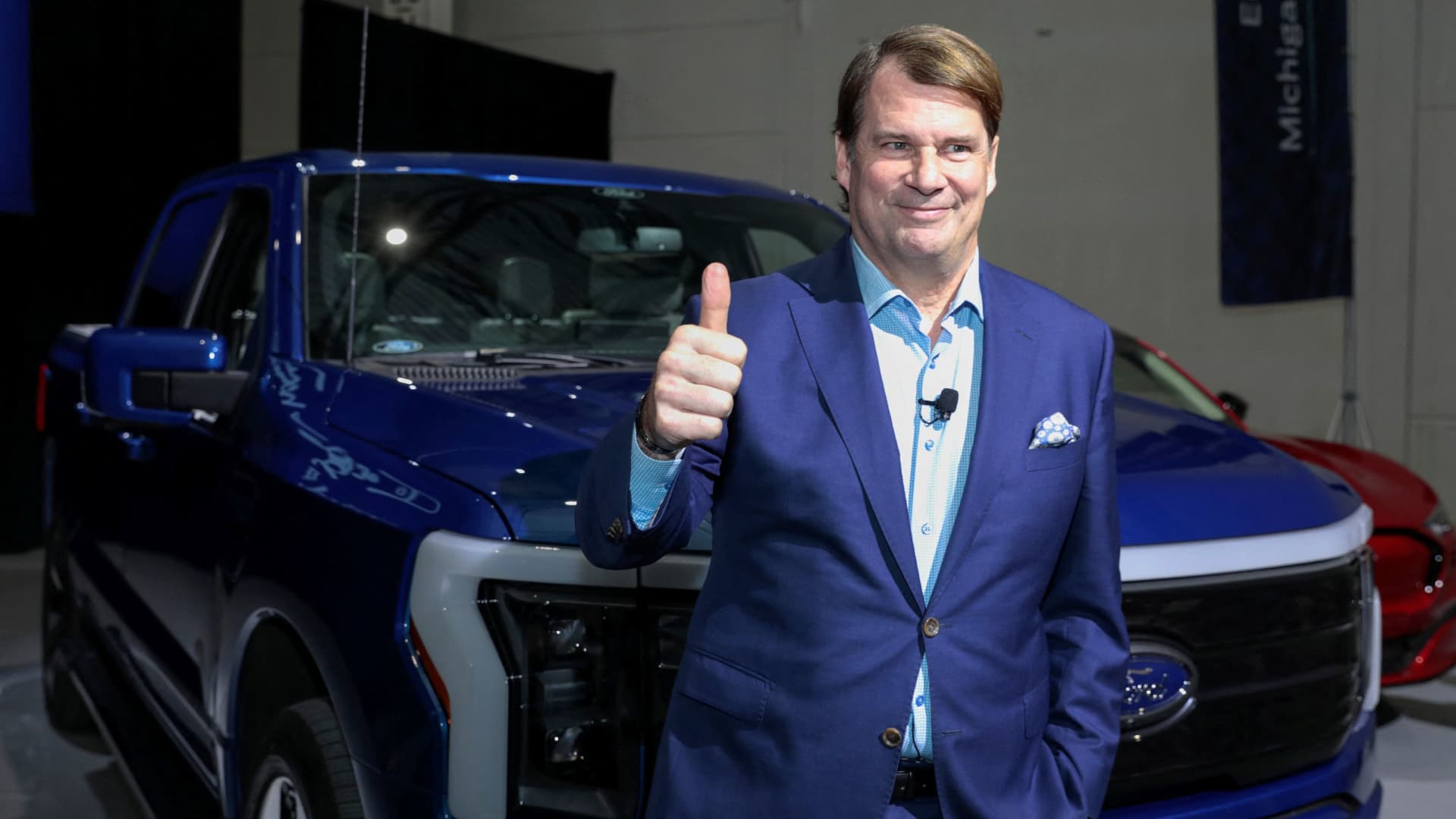Rebecca Cook | Reuters
Farley singled out Toyota Motor and Hyundai Motor for importing hundreds of thousands of vehicles annually from Japan and South Korea, respectively, that have little to no duties compared with the 25% tariff President Donald Trump has threatened imposing on Canada and Mexico.
“There are millions of vehicles coming into our country that are not being applied to these [incremental tariffs],” Farley said during the company’s fourth-quarter earnings call with investors. “So if we’re going to have a tariff policy … it better be comprehensive for our industry.
“We can’t just cherry pick one place or the other because this is a bonanza for our import competitors.”
For years, Ford has touted its investments in the U.S., as well as having the most American workers of any automaker, even as it is considered a disadvantage to its business.
GlobalData reports 46.6% of all vehicles sold in the U.S. last year were produced outside of the country. South Korea, at 8.6%, and Japan, at 8.2%, rank second and third in vehicle imports, only trailing Mexico, at 16.2%, GlobalData reports.
Cars imported from South Korea currently have no tariffs, while those imported from Japan are subject to 2.5% duties. Truck imports for the countries are 25%.
Aside from Hyundai and its sibling company Kia, General Motors imports a notable amount of vehicles tariff-free from South Korea.
Nissan Motor and Honda Motor, along with smaller carmakers such as Subaru, also import vehicles from Japan, along with Toyota.
Breaking News: Business,Autos,Transportation,Business,Ford Motor Co,Toyota Motor Corp,United States,Donald Trump,Honda Motor Co Ltd,General Motors Co,South Korea,Nissan Motor Co Ltd,Nissan Motor Co Ltd,Honda Motor Co Ltd,International trade,business news
#Ford #CEO #calls #comprehensive #tariff #analysis #countries



